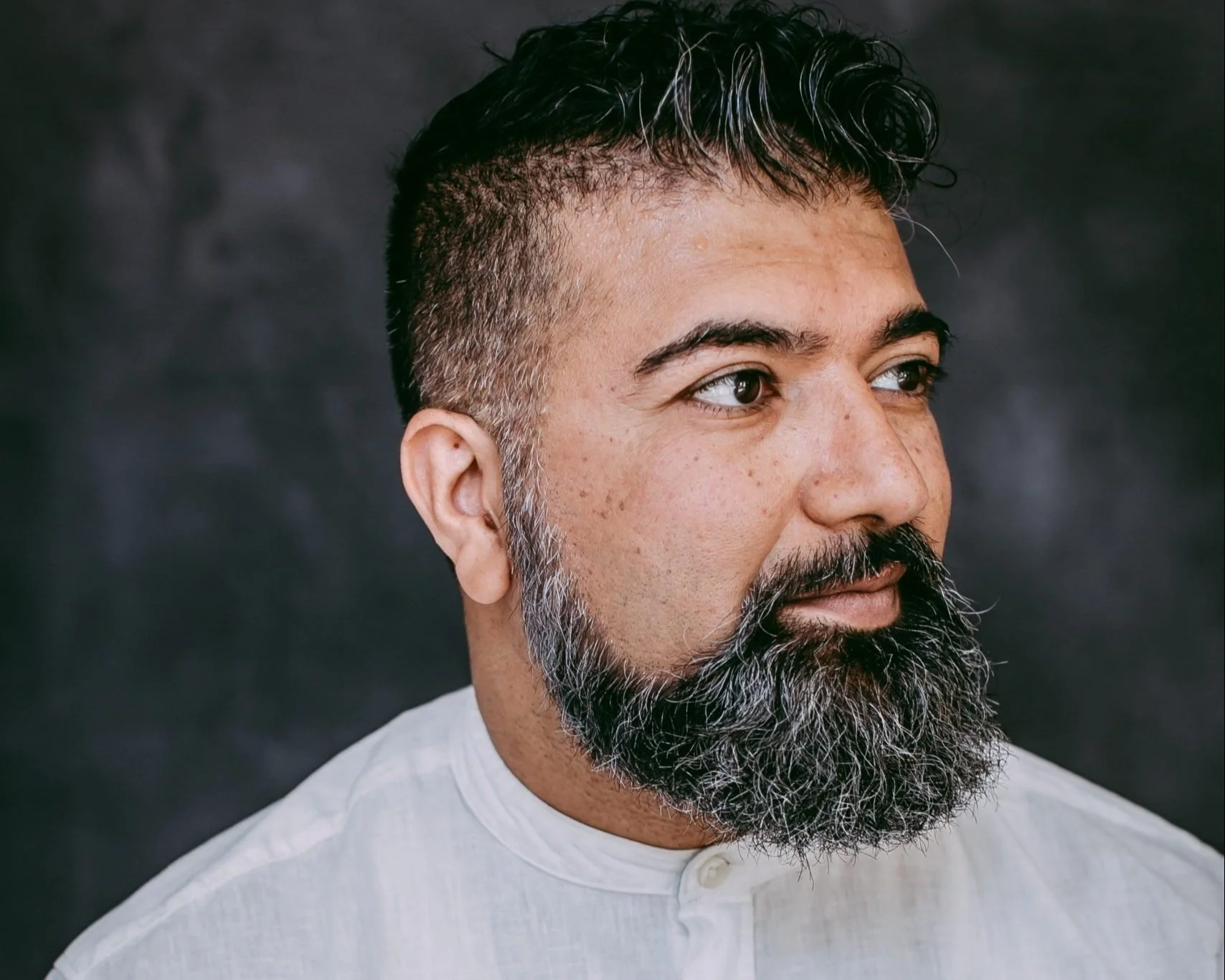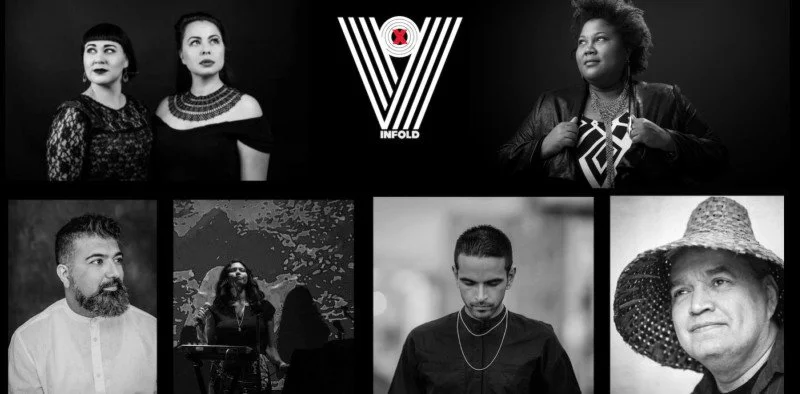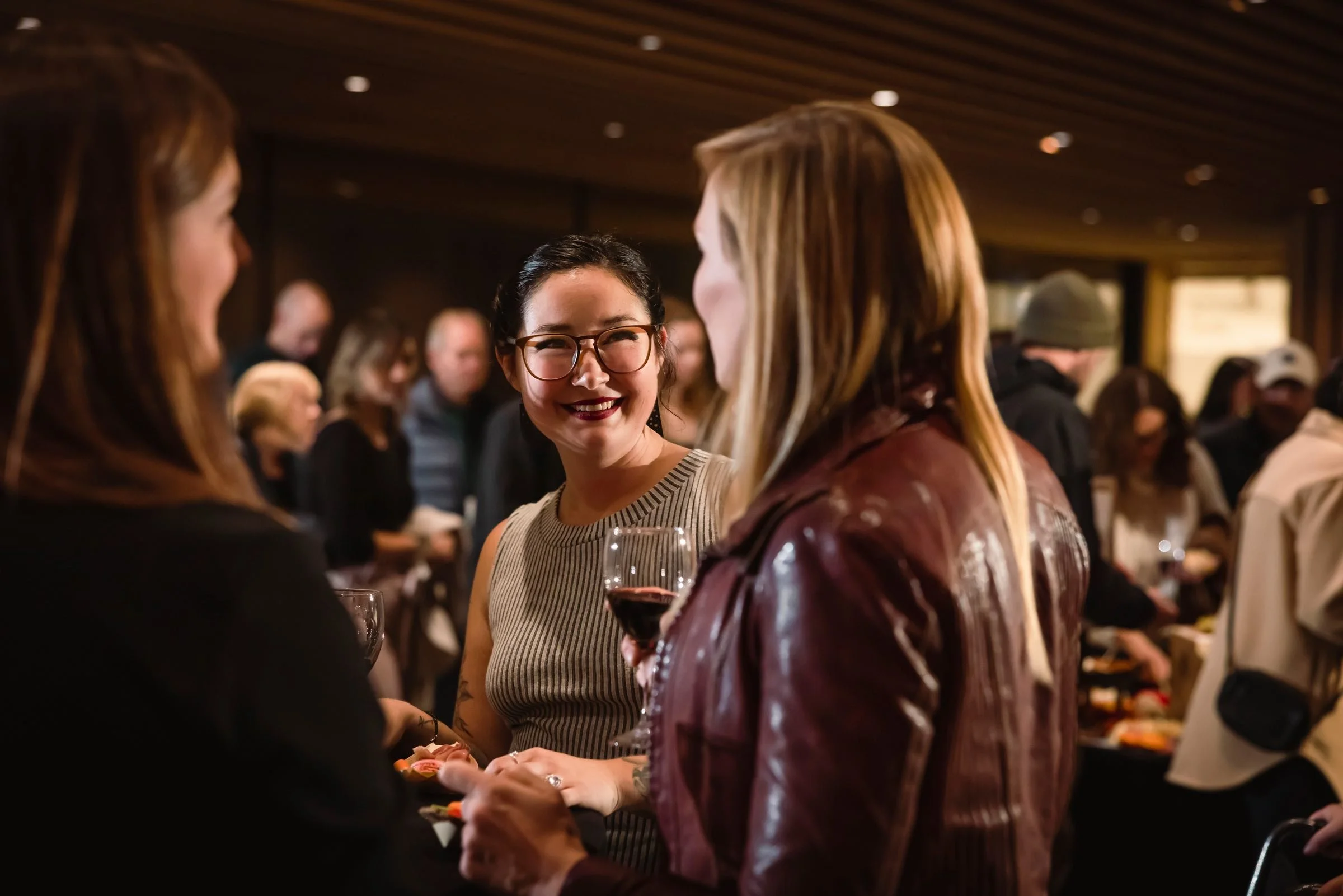Ruby Singh celebrates rich cultural polyphony with Vox.Infold, at the PuSh Festival
Racialized artists come together during the pandemic to find harmony in disparate vocal styles
Ruby Singh. Photo by Christine Cofsky
The PuSh International Performing Arts Festival presents Vox.Infold at Lobe Studios (713 East Hastings Street) from January 20 to 30.
AN INTERVIEW WITH Vox.Infold’s Ruby Singh can be a wide-ranging experience, and when Stir got the Indo-Canadian singer and producer on the line last month we covered a lot of ground in just half an hour. In addition to touching on decolonization and the Black Lives Matters movement, we also ranged across the globe, from the deserts of Rajasthan to the waters of the Salish Sea—where, it turns out, Singh has some remarkable summertime company.
Every year, he explains, he hops on a sailboat with Merlyn Sheldrake—the mycologist son of the radical biochemist Rupert Sheldrake and brother of the equally innovative musician Cosmo Sheldrake—and not only is the scenery exquisite, but so are the conversations. And these, it seems, often tend towards the cosmic, with the possibility of reconciling the scientific and the spiritual often at the top of the agenda.
“He’s not somebody who’ll shy away from speaking about these things,” Singh explains. “And one of the things that has resonated with me is that he’s both serious about the world and in awe of it. And that is where the heart of science really started: trying to understand the awe of the world.”
Sheldrake’s worldview is most succinctly expressed in his marvellous book Entangled Life: How Fungi Make Our Worlds, which addresses the interdependency of all things through a metaphorical and scientific exploration of the mycelial network—the fungal “root system” that enlivens the soil, feeds our trees, guards against drought and disease, and ultimately sustains life on Earth. Vox.Infold doesn’t explicitly sing about mould and mushrooms—although biological concepts do turn up in the song titles “Hyphae” and “Rhizome”—but the group certainly operates on a kind of mycelial basis, as an exploration of the possible links between several disparate cultures and vocal styles.
In addition to Singh, born to Sikh immigrant parents in the B.C. interior, Vox encompasses Inuit vocalists Inuksuk Mackay and Tiffany Ayalik, soul-centred Afro-Canadian singer Dawn Pemberton, Dene songwriter Tiffany Moses, Singh’s fellow South Asian Shamik Bilgi, and Lil’wat composer and knowledge keeper Russell Wallace. All are well-versed in traditional forms and conversant with contemporary musical technology; all are also deeply interested in why we sing, as well as how. And from the moment the seven performers first convened at a Western Front workshop, they knew their mix of shared experience and sonic diversity was special—despite the handicap of having to sing in a masked and socially distanced manner.
Vox.Infold came together at the start of the COVID-19 pandemic, before vaccines had been developed and at a time when fear was running at a fever pitch. “Singing together could actually, you know, kill us,” Singh stresses. “It had that kind of threat level to it. So we took all the precautions possible.
“We were dealing with a lot of social unrest at that time, too, right?” he continues. “The George Floyd murder and the Black Lives Matter movement had happened over the first summer of the pandemic, plus the truth of the genocidal origins of this country was really coming to light… All those things were coming to a head. And all of us being full-time artists, we’d had our lives pretty much completely shattered and changed by the pandemic. But it was really quite a beautiful experience, the way that we all sort of held space for each other—not only in our sorrow and our pain, but also in the ways we could find of expressing any joy that we might be able to bring into the room.”
Joy, in fact, is the defining characteristic of Vox.Infold’s online-only debut album. There are dark moments, for sure, but overriding those is a sense of the disparate artists finding ways to work together—and, given the dire circumstances of early 2020, live together. And while Singh was at the helm, contributing beats and song structures, bringing the music into a safe harbour was unquestionably an act of co-creation. Each singer has a turn in the spotlight, often singing over rich backdrops developed through group inspiration.
“My way of looking at the world has been through the lens of polyphony,” says Singh, whose earlier projects have involved collaborations with rappers and traditional folk musicians from northwestern India. “It’s like a larger metaphor for me about our interdependence with each other as humans, but also with the natural world. I’ve recently started getting into polyphonic poetry as well, so there are a couple of pieces where I wrote some poems and brought them to this group of phenomenal musicians and let them run wild, essentially.”
Other pieces were generated by improvising to projected visuals of the natural world—from Hubble images of distant galaxies to time-lapse videos of sprouting seeds.
“That was a really great part of the process for all of us,” Singh says. “I remember such a feeling of joy in creating that way.”
But there’s also a fierceness underpinning that warmth, he adds. All seven Vox.Infold singers represent traditions that have been actively threatened by colonialism, disease, capitalism, or all three—consider the tuberculosis epidemic that nearly wiped out a generation of Inuit, or the residential school system that nearly silenced Wallace’s Salish ancestors, both occurring within living memory. “We very purposefully chose a group of racialized artists to come together, and very purposefully wanted to create something that didn’t need to try and attract Spotify followers,” Singh says, pointedly linking online predators like Daniel Ek to earlier generations of capitalist exploiters. “And it’s been amazing to watch these performers just flower into this unique manifestation in the world.”














